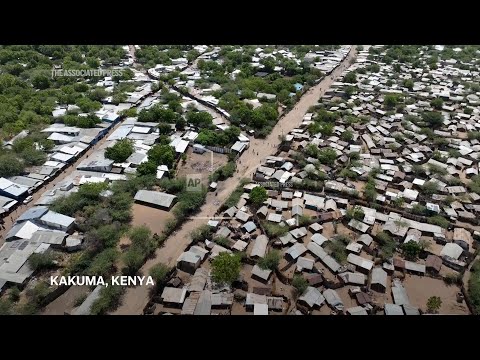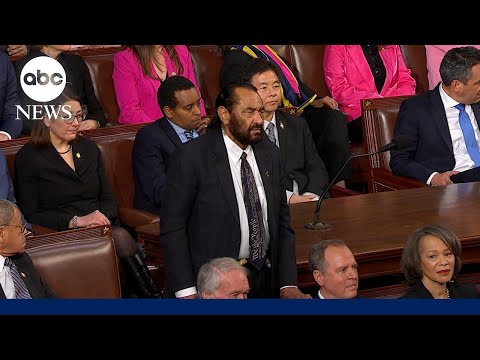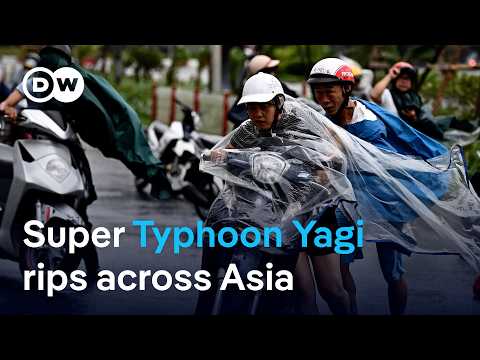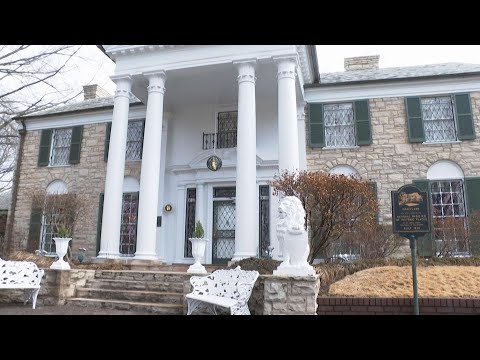(7 Apr 2025)
RESTRICTION SUMMARY:
++PART MUTE++
ASSOCIATED PRESS
Kakuma, Kenya – 15 February 2025
1. Highway signage showing direction to Kakuma Refugee Camp
2. Drone shot of Kakuma Refugee Camp ++MUTE++
3. SOUNDBITE (English) Julienne Oyler, CEO of Inkomoko, a charity providing financial training and low-cost loans:
++PART OVERLAID WITH SHOTS 2, 4 AND 5++
"In a place like Kakuma, there’s a collective shift to say, less than 2% of refugees get resettled to a third country every year. Fewer than 2% of refugees every year are able to return home and so it’s being integrated into the local host country, that not only benefits the refugee long term but it also benefits the local host community."
4. Various of UNHCR tents at Kakuma Refugee Camp’s registration area
5. Various of Julienne talking to Mesfin Getahun, business owner and former soldier who fled Ethiopia for Kakuma
6. SOUNDBITE (Kiswahili) Mesfin Getahun, Ethiopian refugee and business owner:
"UNHCR (United Nations High Commissioner for Refugees) has low budgets here at the moment. They do not give out cooking apparatus, they do not provide shelter. They do not help as much as they did before, they are less effective than they were before. as they did before, they are less effective than they were before."
7. Wide of a highway in Kakuma
8. SOUNDBITE (English) Julienne Oyler, Inkomoko C.E.O:
++PART OVERLAID WITH SHOTS 9 AND 10++
"Refugee business owners and business owners in these communities at large, actually have the characteristics that make world-class entrepreneurs. They’re resilient, they are resourceful, they have access to networks, they have adaptability."
9. Aghan refugees operating their business
10. Various of a Congolese refugee working on a client in her beauty shop
11. Adele Mubalama, a refugee from the Democratic Republic of Congo (DRC) working in her boutique
12. SOUNDBITE (Kiswahili) Adele Mubalama, Congolese refugee:
++PART OVERLAID WITH SHOTS 11 AND 13++
"I have employed 26 people since I started my business. I not only trade locally around Kenya, but also internationally. My business has spread to Canada and the United States."
13. Various of Mubalama and her employees working
14. Drone shot pulling up from Mubalama’s boutique, revealing the larger integrated settlement area
STORYLINE:
Windswept and remote, set in the cattle-rustling lands of Kenya’s northwest, Kakuma was never meant to be permanently settled.
It became one of Africa’s most famous refugee camps by accident as people escaping calamity in countries like South Sudan, Ethiopia and Congo poured in.
More than three decades after its first tents appeared in 1992, Kakuma houses 300,000 refugees. Many rely on aid to survive. Some recently clashed with police over shrinking food rations and support.
Now the Kenyan government and humanitarian agencies have come up with an ambitious plan for Kakuma to evolve into a city.
Although it remains under the United Nations’ management, Kakuma has been re-designated a municipality, one that local government officials later will run.
It is part of broader goal in Kenya and elsewhere of incorporating refugees more closely into local populations and shifting from prolonged reliance on aid.
The refugees in Kakuma eventually will have to fend for themselves, living off their incomes rather than aid. The nearest city is eight hours’ drive away.
Such self-reliance is not easy. Few refugees can become Kenyan citizens. A 2021 law recognizes their right to work in formal employment, but only a tiny minority are allowed to do so.
Find out more about AP Archive: http://www.aparchive.com/HowWeWork
Twitter: https://twitter.com/AP_Archive
Facebook: https://www.facebook.com/APArchives
Instagram: https://www.instagram.com/APNews/
You can license this story through AP Archive: http://www.aparchive.com/metadata/youtube/33ca739beb8f469384679545fa27fbe1
Author: AP Archive
Go to Source
News post in April 12, 2025, 6:04 am.
Visit Our Sponsor’s:
News Post In – News





